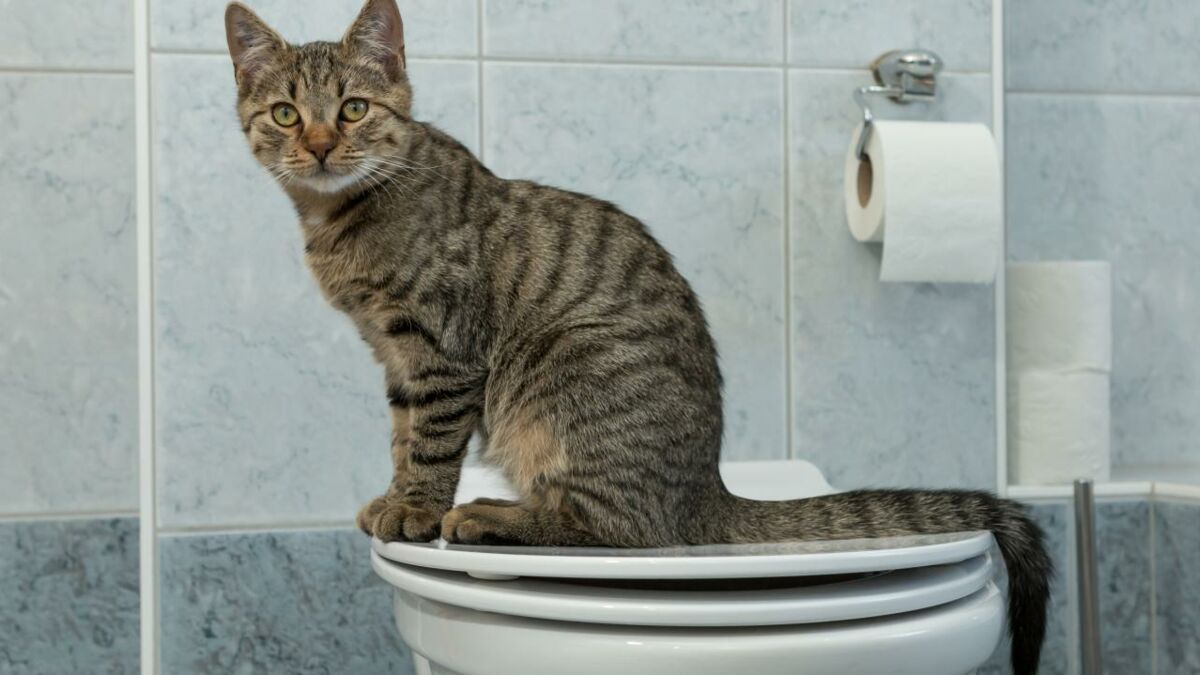Avoid Plumbing Problems: Never Flush Cat Poop Down Your Toilet - Expert Guidance
Avoid Plumbing Problems: Never Flush Cat Poop Down Your Toilet - Expert Guidance
Blog Article
This post in the next paragraphs involving Don’t flush cat feces down the toilet is absolutely stimulating. You should keep reading.

Intro
As cat owners, it's necessary to bear in mind exactly how we dispose of our feline buddies' waste. While it may appear convenient to purge pet cat poop down the toilet, this method can have detrimental repercussions for both the atmosphere and human wellness.
Alternatives to Flushing
Fortunately, there are safer and much more responsible ways to get rid of feline poop. Take into consideration the adhering to choices:
1. Scoop and Dispose in Trash
One of the most usual approach of disposing of cat poop is to scoop it right into a naturally degradable bag and toss it in the trash. Make certain to utilize a committed litter inside story and dispose of the waste promptly.
2. Usage Biodegradable Litter
Go with naturally degradable feline litter made from products such as corn or wheat. These clutters are environmentally friendly and can be securely thrown away in the trash.
3. Hide in the Yard
If you have a yard, take into consideration burying pet cat waste in an assigned location away from veggie gardens and water resources. Make sure to dig deep adequate to avoid contamination of groundwater.
4. Mount a Pet Waste Disposal System
Invest in a family pet garbage disposal system specifically created for pet cat waste. These systems use enzymes to break down the waste, minimizing smell and ecological impact.
Health Risks
In addition to environmental worries, purging feline waste can additionally posture wellness threats to humans. Feline feces may include Toxoplasma gondii, a parasite that can cause toxoplasmosis-- a potentially severe illness, specifically for expectant ladies and people with weakened immune systems.
Ecological Impact
Purging feline poop introduces unsafe virus and parasites into the water, presenting a significant threat to water ecosystems. These pollutants can negatively affect marine life and concession water quality.
Verdict
Responsible pet dog ownership extends past providing food and shelter-- it additionally entails proper waste monitoring. By avoiding flushing feline poop down the commode and going with alternate disposal approaches, we can minimize our ecological impact and safeguard human health.
Why Can’t I Flush Cat Poop?
It Spreads a Parasite
Cats are frequently infected with a parasite called toxoplasma gondii. The parasite causes an infection called toxoplasmosis. It is usually harmless to cats. The parasite only uses cat poop as a host for its eggs. Otherwise, the cat’s immune system usually keeps the infection at low enough levels to maintain its own health. But it does not stop the develop of eggs. These eggs are tiny and surprisingly tough. They may survive for a year before they begin to grow. But that’s the problem.
Our wastewater system is not designed to deal with toxoplasmosis eggs. Instead, most eggs will flush from your toilet into sewers and wastewater management plants. After the sewage is treated for many other harmful things in it, it is typically released into local rivers, lakes, or oceans. Here, the toxoplasmosis eggs can find new hosts, including starfish, crabs, otters, and many other wildlife. For many, this is a significant risk to their health. Toxoplasmosis can also end up infecting water sources that are important for agriculture, which means our deer, pigs, and sheep can get infected too.
Is There Risk to Humans?
There can be a risk to human life from flushing cat poop down the toilet. If you do so, the parasites from your cat’s poop can end up in shellfish, game animals, or livestock. If this meat is then served raw or undercooked, the people who eat it can get sick.
In fact, according to the CDC, 40 million people in the United States are infected with toxoplasma gondii. They get it from exposure to infected seafood, or from some kind of cat poop contamination, like drinking from a stream that is contaminated or touching anything that has come into contact with cat poop. That includes just cleaning a cat litter box.
Most people who get infected with these parasites will not develop any symptoms. However, for pregnant women or for those with compromised immune systems, the parasite can cause severe health problems.
How to Handle Cat Poop
The best way to handle cat poop is actually to clean the box more often. The eggs that the parasite sheds will not become active until one to five days after the cat poops. That means that if you clean daily, you’re much less likely to come into direct contact with infectious eggs.
That said, always dispose of cat poop in the garbage and not down the toilet. Wash your hands before and after you clean the litter box, and bring the bag of poop right outside to your garbage bins.
https://trenchlesssolutionsusa.com/why-cant-i-flush-cat-poop/

I am just very curious about How to Dispose of Cat Poop and Litter Without Plastic Bags and I'm hoping you enjoyed the entire post. Enjoyed reading our piece of writing? Please share it. Let somebody else find it. Thanks a lot for going through it.
Call Today Report this page